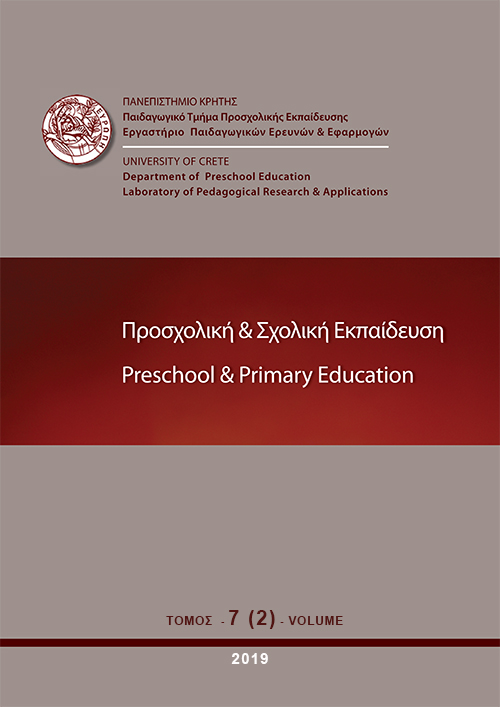Four Job Satisfaction’s dimensions of secondary education teachers: An Exploratory Factor Analysis based on a Greek sample

Abstract
Background
Surveying and assessing teachers’ job satisfaction constitutes an evergreen crosscutting issue. It deploys the formation of policies that underpin its’ augmentation aiming for enhanced educational outcomes. Internationally there are not many valid instruments that can be used to assess teachers’ job satisfaction. Especially in Greece, research on the reliability and validity of these instruments when applied on teachers is non-existent.
Method
The instrument used was JSS. JSS describes nine (9) dimensions of Job Satisfaction. 177 secondary education teachers in Western Greece took part in this research. Exploratory Factor Analyses was conducted.
Results
Parallel analyses and principal axis factoring revealed a structure of 4 dimensions of the JSS. Confirmatory factor analysis ascertained this structure that features satisfactory reliability and construct validity.
Conclusions
We could say that the JSS, according to the factorial structure, could be considered an appropriate tool for investigating the JS of teachers in Greece as well. The four -dimensions of the JSS revealed by the answers of Greek secondary education teachers are: teachers’ Payment framework, teachers’ Supervision, Nature of work and teachers’ Communication.
Article Details
- How to Cite
-
Lavidas, K., Dalapa, M., Dimitriadou, S., & Athanassopoulos, S. (2019). Four Job Satisfaction’s dimensions of secondary education teachers: An Exploratory Factor Analysis based on a Greek sample. Preschool and Primary Education, 7(2), 102–115. https://doi.org/10.12681/ppej.20412
- Issue
- Vol. 7 No. 2 (2019)
- Section
- Articles

This work is licensed under a Creative Commons Attribution-NonCommercial-ShareAlike 4.0 International License.
Authors who publish with this journal agree to the following terms:
- Authors retain copyright and grant the journal right of first publication with the work simultaneously licensed under a Creative Commons Attribution Non-Commercial License that allows others to share the work with an acknowledgement of the work's authorship and initial publication in this journal.
- Authors are able to enter into separate, additional contractual arrangements for the non-exclusive distribution of the journal's published version of the work (e.g. post it to an institutional repository or publish it in a book), with an acknowledgement of its initial publication in this journal.
- Authors are permitted and encouraged to post their work online (preferably in institutional repositories or on their website) prior to and during the submission process, as it can lead to productive exchanges, as well as earlier and greater citation of published work (See The Effect of Open Access).


